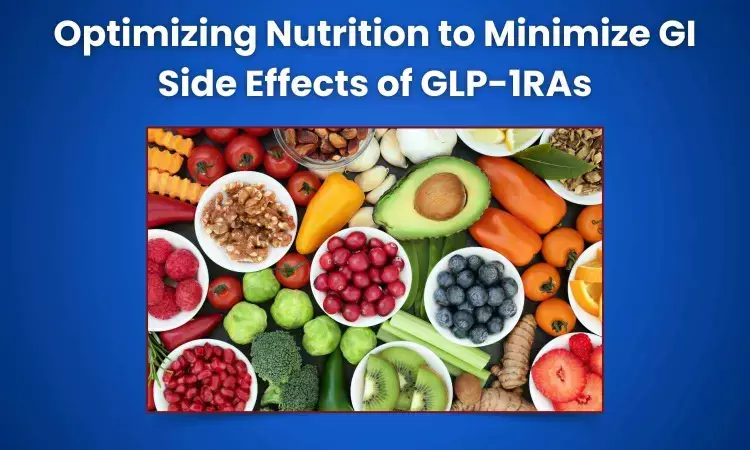- Home
- Medical news & Guidelines
- Anesthesiology
- Cardiology and CTVS
- Critical Care
- Dentistry
- Dermatology
- Diabetes and Endocrinology
- ENT
- Gastroenterology
- Medicine
- Nephrology
- Neurology
- Obstretics-Gynaecology
- Oncology
- Ophthalmology
- Orthopaedics
- Pediatrics-Neonatology
- Psychiatry
- Pulmonology
- Radiology
- Surgery
- Urology
- Laboratory Medicine
- Diet
- Nursing
- Paramedical
- Physiotherapy
- Health news
- Fact Check
- Bone Health Fact Check
- Brain Health Fact Check
- Cancer Related Fact Check
- Child Care Fact Check
- Dental and oral health fact check
- Diabetes and metabolic health fact check
- Diet and Nutrition Fact Check
- Eye and ENT Care Fact Check
- Fitness fact check
- Gut health fact check
- Heart health fact check
- Kidney health fact check
- Medical education fact check
- Men's health fact check
- Respiratory fact check
- Skin and hair care fact check
- Vaccine and Immunization fact check
- Women's health fact check
- AYUSH
- State News
- Andaman and Nicobar Islands
- Andhra Pradesh
- Arunachal Pradesh
- Assam
- Bihar
- Chandigarh
- Chattisgarh
- Dadra and Nagar Haveli
- Daman and Diu
- Delhi
- Goa
- Gujarat
- Haryana
- Himachal Pradesh
- Jammu & Kashmir
- Jharkhand
- Karnataka
- Kerala
- Ladakh
- Lakshadweep
- Madhya Pradesh
- Maharashtra
- Manipur
- Meghalaya
- Mizoram
- Nagaland
- Odisha
- Puducherry
- Punjab
- Rajasthan
- Sikkim
- Tamil Nadu
- Telangana
- Tripura
- Uttar Pradesh
- Uttrakhand
- West Bengal
- Medical Education
- Industry
New Dietary Recommendation for Managing Gastrointestinal Issues Treated with GLP-1 Receptor Agonists

A recent commentary article published in Diabetes, Metabolic Syndrome and Obesity provides dietary recommendations for individuals using GLP-1 receptor agonists (GLP-1RAs), such as Ozempic, prescribed for obesity and type 2 diabetes. The study emphasizes optimizing meal composition to improve patient adherence to treatment.
While these drugs are effective for weight management, they can cause gastrointestinal side effects like nausea, diarrhea, and constipation due to delayed gastric emptying. The research paper led by Silvia Gentinetta et.al. emphasizes the importance of dietary choices in managing these side effects and improving patient adherence to treatment.
GLP-1RAs influence hunger and satiety, reducing energy intake and promoting weight loss. These medications also slow down gastric emptying, which leads to gastrointestinal issues.
The article highlights the need for specific dietary recommendations to manage these symptoms, particularly in the evening, when they tend to be more pronounced.
Key Dietary Recommendations from the published paper include:
- Macronutrient Balance: Meals should include all three macronutrients (carbohydrates, proteins, and fats) while paying attention to their effects on gastric emptying.
- Carbohydrates: Focus on complex carbohydrates like pasta, bread, and crackers in moderation, while limiting whole grains and simple sugars.
- Proteins: Choose low-fat protein sources such as white meats, fish and fresh cheeses and avoid red meats, processed meats, and mature cheeses.
- Fats: Use extra virgin olive oil in moderation, due to its health benefits, but be aware that fats can slow down gastric emptying.
- Vegetables: Include low-fiber vegetables in appropriate portion sizes, avoiding those with peels and seeds.
- Fiber: Limit high-fiber foods, especially in the evening, because they can slow gastric emptying.
- Cooking Methods: Use simple methods like steaming, baking, or boiling, and avoid complex dishes, spicy foods, and alcohol.
- Hydration: Stay hydrated by drinking water in small sips and avoid excessive intake during meals.
- Meal Timing: Have small, frequent meals, and avoid lying down or engaging in vigorous activity after meals. It is recommended to eat slowly.
- Foods to Avoid: Avoid consuming liquid foods like soups during the evening meal. (Refer Figure 1)
Figure 1: The dinner of the patient treated with GLP-1 receptor agonist.
Additionally, the authors have put forth behavioral recommendations for managing meals effectively (Refer Figure 2)
Figure 2: Behavioral Recommendations For Managing Meals
The authors emphasize that these dietary recommendations, developed based on a review of existing literature and dietary guidelines, can improve patient adherence to treatment while preventing therapy discontinuation. However, further research is needed to explore how food properties and lifestyle factors influence gastric emptying and to develop even more targeted dietary management strategies.
These recommendations contribute valuable insights for clinicians and patients, offering practical guidance on managing gastrointestinal side effects while using GLP-1RAs. As the scientific interest in GLP-1RA-mediated gastric emptying delays continues to grow, tailored dietary interventions could enhance obesity management and improve patient outcomes.
Reference: Gentinetta S, Sottotetti F, Manuelli M, Cena H. Dietary Recommendations for the Management of Gastrointestinal Symptoms in Patients Treated with GLP-1 Receptor Agonist. Diabetes Metab Syndr Obes. 2024 Dec 19;17:4817-4824. doi: 10.2147/DMSO.S494919. PMID: 39722834; PMCID: PMC11668918.


